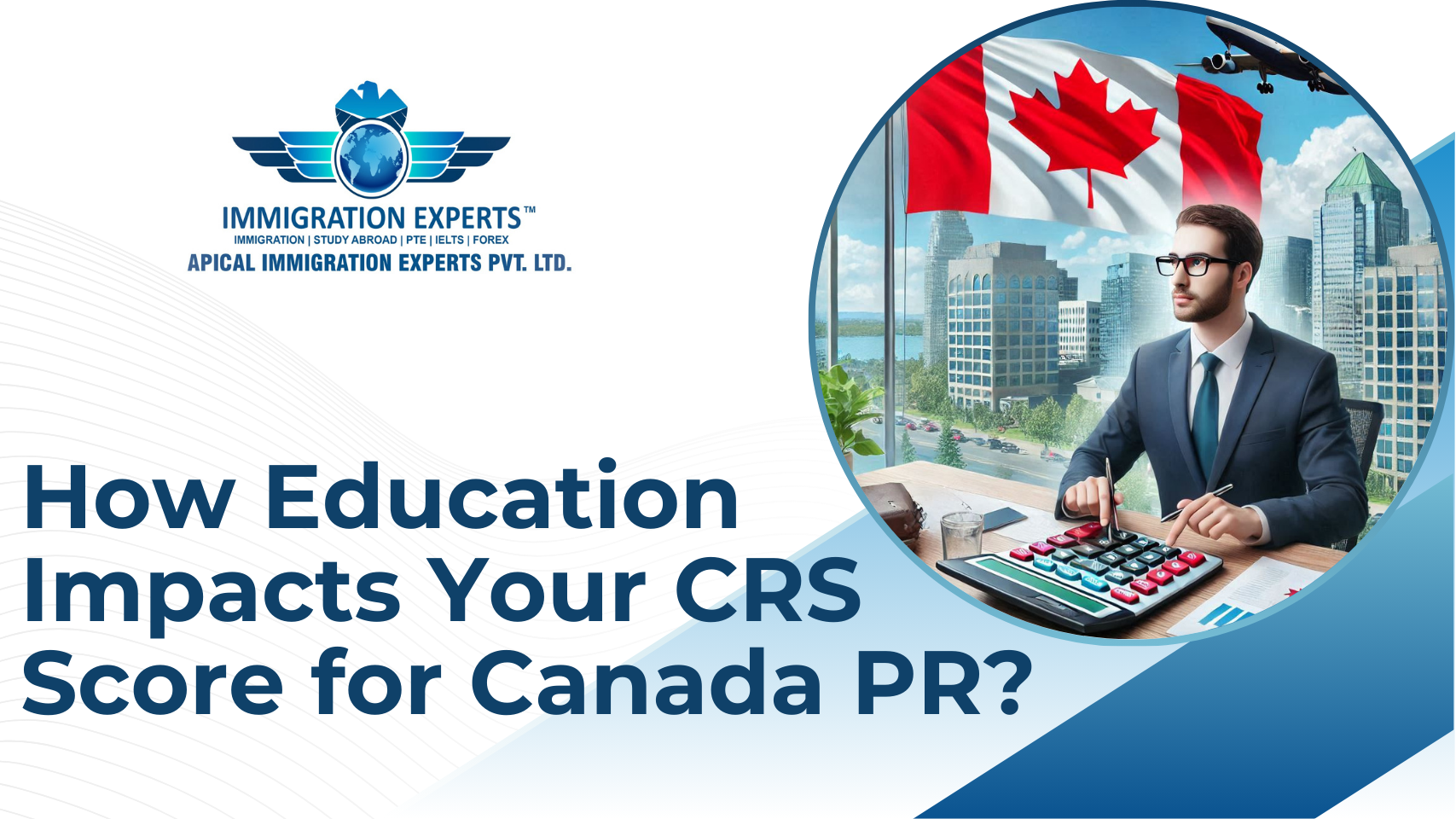Education is one of the strongest levers in your Comprehensive Ranking System (CRS) score. It influences your core human capital points. It also affects your skill transferability points. If you studied in Canada, you may get additional points on top. The right mix of credentials, language, and experience can lift your profile quickly.
This guide explains how education points work, how to claim them, and smart ways to raise your CRS without starting a new degree from scratch.
Quick refresher: What is the CRS?
The CRS is a points-based system that ranks Express Entry candidates. It looks at:
- Core human capital (age, education, official languages, Canadian work experience)
- Spouse/partner factors (if applicable)
- Skill transferability (education + language, education + work experience)
- Additional points (Canadian study, French, arranged employment, provincial nomination, etc.)
Your education can contribute to three of these buckets: core, transferability, and additional.
Core human capital: points for your highest credential
You receive core points for your highest completed credential. Examples:
- Secondary school
- One-year post-secondary
- Two-year post-secondary
- Bachelor’s (or a three-year program)
- Two or more post-secondary credentials (one must be three years or longer)
- Master’s or professional degree
- PhD
Key idea: Higher levels earn more points. Also, unmarried candidates have slightly higher maximums in the core section than candidates with a spouse/partner. If you hold multiple credentials, list them all, but the system awards core points based on the highest one.
Do I need an ECA?
- Yes, if your top credential is from outside Canada. You must get an Educational Credential Assessment (ECA) from an approved body.
- No, if your credential is Canadian. Canadian degrees, diplomas, and certificates do not need an ECA.
Tip: If you have two foreign credentials, get ECAs for both. The “two or more credentials” category can beat a single bachelor’s.
Skill transferability: where education multiplies your score
Skill transferability combines your education with official language ability and/or work experience. The goal is to reward candidates who have both strong schooling and skills that translate into the Canadian market.
Two key combos for education are common:
- Education + language
- If your language scores are modest, you earn few transferability points.
- When you reach higher benchmarks (for example, CLB 7 to CLB 9 and above), points jump.
- Higher education + high language = strong boost.
- Education + Canadian work experience
- Even one year of Canadian skilled work experience plus a strong credential can add valuable points.
- More Canadian experience often means better transferability points.
Practical takeaway: Sometimes the fastest way to “unlock” your education’s value is not a new degree. It is raising your language scores or gaining Canadian experience (for example, through a post-graduation work permit, if eligible). A few extra language points can trigger a much larger transferability gain.
Additional points: Canadian study gives you a bonus
Studied in Canada? You may qualify for additional points for Canadian education. In general:
- One or two-year Canadian post-secondary credential → bonus points
- A Canadian credential of three years or longer, or a master’s, professional degree, or PhD → higher bonus points
To qualify, your Canadian program must meet IRCC rules (for example, minimum program length and in-Canada study requirements). Distance or short programs usually do not count.
Why this matters: These bonus points stack on top of your core and transferability totals. Many candidates cross the draw cut-off because of this Canadian-study bump.
ECA strategy: get it right the first time
An ECA tells IRCC what your foreign credential equals in Canada. Follow these best practices:
- Pick the right credential to assess first. Start with the highest level.
- Include secondary credentials if they may help you reach “two or more.”
- Match your transcripts to ECA requirements. Every assessing body has its own steps.
- Keep your documents consistent. Your name, dates, and major should match your forms and résumé.
Common pitfalls to avoid:
- Assuming two short diplomas equal a bachelor’s. The ECA decides the equivalency, not your transcript math.
- Not assessing the credential that actually raises your category.
- Missing deadlines or sending incomplete records.
Should you add another credential?
A second credential can help you reach the “two or more” category. However, a full new degree is time-intensive and costly. Before you enroll, consider:
- Your current gap. How far are you from recent CRS cutoffs?
- Language upside. Could a higher IELTS/CELPIP/TEF score boost transferability faster?
- Provincial Nominee Program (PNP). A nomination adds 600 points and often outweighs the need for another diploma.
- Canadian study path. If you plan to study in Canada anyway, aim for a program length that qualifies for additional points and practical work exposure.
Rule of thumb: Increase language first. Then revisit education. A short, targeted credential may be enough if it pushes you into the “two or more” bracket.
How spouses affect education points
If you include a spouse/partner:
- Your core education maximum is slightly lower than a single applicant’s maximum.
- Your spouse’s education can add spouse factor points if they also complete an ECA (or hold Canadian education).
- If your spouse has weaker language or education, you can choose to list them as non-accompanying to preserve your CRS. You can still sponsor them later, subject to rules, after you land as a PR.
Run both scenarios (accompanying vs. non-accompanying) to see which gives the best CRS.
Fast ways to raise CRS using education
- Secure ECAs for multiple foreign credentials. This may move you into “two or more.”
- Retake your language test. CLB 9+ often unlocks larger transferability points tied to education.
- Leverage Canadian study. If already in Canada or planning to study, choose a program that qualifies for additional points and offers co-op or internships.
- Polish your résumé consistency. Dates and program titles must match your ECA and forms.
- Consider French. If you can reach higher French levels, you may earn additional points and strengthen transferability in combination with your education.
Example scenarios (for clarity)
- Amit, Bachelor’s + CLB 7: Solid core points, limited transferability. If Amit reaches CLB 9, his education starts yielding stronger transferability points without changing his degree.
- Riya, two diplomas + ECA: Her ECA shows “two or more post-secondary credentials (one 3+ years).” She gains higher core points than a single diploma holder.
- Sahil, one-year Canadian diploma: He qualifies for additional points for Canadian study, which stack with his core education points.
- Meera, Master’s abroad + spouse with Bachelor’s: Meera secures ECA for her Master’s and spouse gets an ECA for the Bachelor’s. They capture main applicant core points, spouse factor points, and better transferability after improving English.
Mistakes that lower education points
- Not getting an ECA for the highest foreign credential.
- Assuming a “post-graduate diploma” abroad equals a Canadian master’s without ECA proof.
- Inconsistent program names and dates across ECA, résumé, and forms.
- Ignoring spouse ECAs when spouse points could help.
- Overlooking Canadian-study bonus points because of program length or delivery mode.
FAQs: Education and CRS
1) Do I need an ECA if I studied in Canada?
No. Canadian credentials do not need an ECA. Foreign credentials do.
2) Will a short online course increase my CRS?
Usually not. Short or non-credential courses rarely change your CRS category. Focus on recognized credentials.
3) Is it better to add another diploma or improve language?
Improve language first. Higher language levels often “unlock” bigger education-related transferability points.
4) Do part-time Canadian programs count for additional points?
You must meet IRCC’s rules on program length and in-Canada study. Many part-time or distance programs do not qualify.
5) My spouse has weak English. Should they be accompanying?
Run both scenarios in a CRS calculator. Sometimes listing your spouse as non-accompanying yields a higher score, but weigh family plans and long-term goals.
Final checklist
- Get ECAs for all relevant foreign credentials.
- Ensure your highest credential is assessed.
- Align résumé, ECA, and forms.
- Push for higher language scores to amplify transferability.
- If studying in Canada, target programs that qualify for additional points.
- Recalculate your CRS after each update to track progress.
Ready to boost your CRS score? Consult the best Canada immigration experts in Delhi today and take the next step toward your PR dream.
Email: info@immigrationxperts.com
Call us: +91-9999467686, +91-8447-696555






